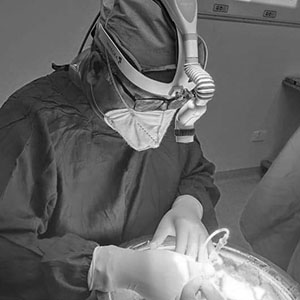Patients suffering from chronic kidney disease (CKD) or end-stage renal disease (ESRD) need a kidney transplant or remain on dialysis. A kidney transplant provided better quality of life and longer survival in these patients. Normally transplant is done after matching blood group of donor and recipient. But sometimes matched blood group donor is not available in family and hence patient remains on wait list. However, with advancements in science, it is now possible to carry-on transplants in such cases. The option of having a living donor with a different blood group reduced the time on a waiting list for some people.
What is Blood Group Compatibility in Organ Transplant?
Blood Group compatibility refers to whether or not organs from different blood groups can safely be transplanted into a patient’s body. Major Blood Groups include A, B, AB and O. The presence or absence of specific antigens on the surface of blood cells establishes each blood group.
Blood group compatibility depends on whether or not the antigens on the donor’s red blood cells will react with the recipient’s immune system.
People with group O are generally considered universal donors because their organs can be transplanted into any blood group patient without causing an immune reaction. Group O, the universal donor blood group, is difficult to match for a kidney transplant. Group O people can only get kidneys from Group O donors. Since Group O people may only receive kidneys from other Group O donors, finding a matched donor is harder.
Conversely, people with group AB are considered universal recipients. They can receive organ from any blood group without an immune reaction. Therefore, understanding blood group compatibility is important for ensuring successful and safe organ transplant.
What is ABO Compatible Kidney Transplant?
An ABO-compatible kidney transplant is where the donor and recipient have compatible blood groups. This means that the donor’s blood group matches the recipient’s, which is important because it helps prevent the recipient’s immune system’s rejection of the transplanted kidney.
For example, a person with blood group A can receive a kidney from someone with blood group A or O but not from someone with blood group B or AB.
What is ABO Incompatible Kidney Transplant?
In an ABO incompatible kidney transplant, blood groups of the donor and recipient are not compatible. Previously, there was a high chance of rejection of new kidney immediately by recipient’s body. Body would recognize the new kidney as a foreign body and cause a reaction that could be fatal and hence, only those transplants were carried out that were ABO blood group compatible. Advancements in the field of transplant medicine have led to the possibility of ABO-incompatible kidney transplants. In this the patient is given medical therapy as per special protocol before the transplant. Medical therapy lowers the levels of antibodies in the recipient’s body and lowers the risk of rejection.
What is the process of ABO Incompatible Kidney Transplant?
People willing to donate a kidney for an ABO incompatible transplant must have a compatible blood group with the recipient. However, advancements in medical technology make it possible to perform a successful ABO incompatible transplant by removing antibodies from the donor’s blood before transplantation and reduce the risk of rejecting the donor kidney. This process is known as desensitization and allows for a wider pool of donors to be considered for kidney transplants, ultimately increasing the chances of finding a suitable match for the recipient.
- Removing antibodies from your blood (Plasmapheresis/ Plasma Exchange).
- Injecting antibodies into your body that protect you from infections (intravenous immunoglobulin).
- Providing other medications (immunosuppressant) that protect your new kidney from antibodies.
Success rates of ABO Incompatible Kidney Transplant
In experienced centers ABO incompatible kidney transplant have a success rate of around more than 90%, which is very promising. Now days with the availability of newer immunosuppressive medicines the success is almost equal to ABO compatible kidney Transplant.
Success depends upon many factors like antibody titers, donor’s kidney status, and recipient’s medical status. Treating transplant team would decide that whether you are fit to undergo ABO Incompatible Kidney Transplant.
Options other than ABO Incompatible Kidney Transplant
Discuss in detail with your treating team about the following options and get best treatment plan for yourself.
- Paired Kidney Exchange (SWAP)
- Deceased Donor Organ Transplant
Get An Expert Consultation
* Kidney Transplant
* Robotic Kidney Transplant
* SWAP Kidney Transplant
* ABO Incompatible Transplant
* AV Fistula
* CAPD Cather Insertion
drvarunmittal@yahoo.com
